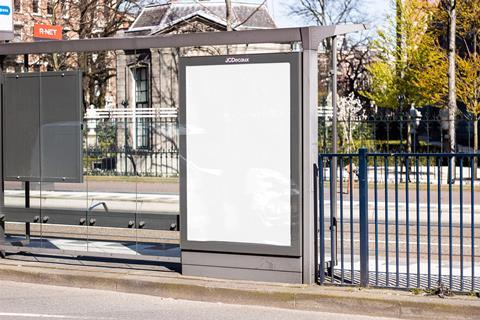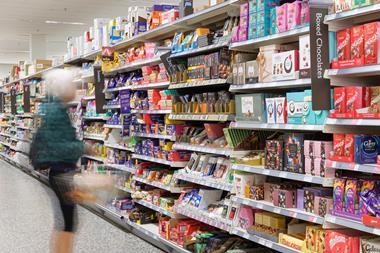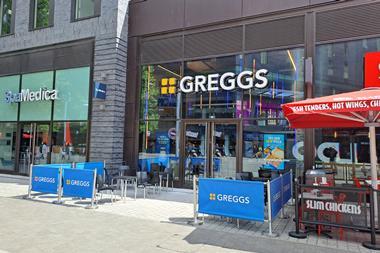
Health campaign groups are urging the government to extend the incoming HFSS advertising ban to out of home after a review found restrictions introduced by local councils were effective in reducing obesity.
The review also showed that the clampdowns, begun by mayor of London Sadiq Khan and Transport for London, had driven a “snowball effect”. Up to 150 organisations across England were now looking at joining in, it said.
However, the research also points out problems such as limits to the sites owned by councils, and opposition from multinational food companies.
Until now, no review had been conducted examining the scope and impact of the advertising restrictions.
However, a report conducted by the Scottish government assessed its effectiveness by looking at the existing evidence on policy implementation in the UK and incorporating information gained from published peer-reviewed and ‘grey literature’ up to June 2024. Scotland has yet to introduce any HFSS restrictions on outdoor ads.
It concluded that restricting OOH advertising of HFSS products was “effective”. It pointed to academic research that estimated that after 12 months, the restrictions brought in by TfL had reduced the number of people with obesity by 4.8% and led to 94,867 fewer cases of obesity than expected, according to analysis by the University of Sheffield and the London School of Hygiene & Tropical Medicine.
“Implementation of similar policies has had a snowball effect across England, with at least 14 local authorities confirmed as having an implemented or forthcoming policy,” says the Scottish government’s review.
“However, engagement with the policy is significantly more widespread than this, with up to 150 additional local authorities in England in the planning/consulting stages.”
The study found that although they had been brought in by different councils, there has been a large degree of consistency in the various bans. All local authorities have utilised the nutrient profiling model to help advertising companies differentiate between HFSS and non-HFSS products, with campaign group Sustain having been influential in helping them develop and implement the policies.
It found the schemes had attracted support from smaller businesses, charities and the media, and that “prioritising health outcomes in the lead-up to policy implementation was also an important facilitator” – as was the “progressive’ culture of certain areas.
Policy limitations
However, the review also found limitations with the policy. Local governments were only able to introduce restrictions in advertising sites they owned – often a low number, especially in smaller regions with relatively high numbers of privately owned sites.
It concluded that evaluating the effectiveness of an implemented policy was “challenging”, with no consensus on whether it was best to assess a reduction in advertising exposure, change in energy consumption, obesity, or financial outcomes.
Fran Bernhardt, Sustain’s commercial determinants co-ordinator, who advised Sadiq Khan on TfL’s unhealthy food advertising ban, said the rapid review provided a “compelling case” for further action both north and south of the border.
“It’s fantastic to see the Scottish government making such a compelling case for championing children’s health,” she told The Grocer.
“The evidence for restricting unhealthy food advertising is clear.
“The UK government has delayed and diluted its TV and online advertising policy significantly – which puts more onus on local areas to champion children’s health because national government is implementing a much weaker policy than required and expected.
“The House of Lords report called for unhealthy food advertising to be restricted across all mediums. National government did not commit to any action on outdoor advertising at a national/devolved government level beyond encouraging local governments to bring in their own policies – but as this Scottish government report points to, there is lots of private advertising estate that are out of scope for local government restrictions.”
However, whilst campaign groups are calling for the HFSS ban – which comes into force in January on TV and online – to be extended to out of home, food companies are being encouraged to switch their spend to outdoor.
Advertising agencies claim it is an opportunity for HFSS bans to “thrive” under the government’s ban.
Billboard advertising company Alight Media said OOH was “essential” for food companies under food advertising restrictions.
In an appeal to attract advertisers it said: “As scrutiny around less healthy food advertising increases, visibility in trusted, high-quality public spaces is more important than ever.
“Unlike online platforms where ads may be blocked or restricted, OOH ensures your brand message is seen, remembered and trusted. Rather than being lost in the noise of digital restrictions, OOH enables companies to stand out and connect with consumers in meaningful, real-world moments.”
Excite OOH, meanwhile, described the incoming ban as giving brands the chance for a “rethink strategy”.
“OOH is uniquely placed to support less healthy food through these changes”, it said, describing the medium as ”one of the only broadcast-scale channels left for LHF brands”.
“We see this as less about restriction and more about opportunity. Brands that adapt early can secure premium sites, tell their story in fresh ways, and stay ahead of competitors.”



















No comments yet